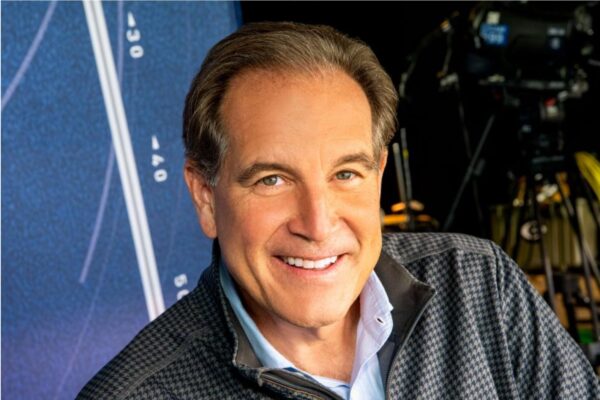“Attention media: This is the first-ever overtime game in Rose Bowl history.”
The announcement carried through the Rose Bowl Stadium press box as reporters grabbed stat sheets, refilled coffees and prepared to type like hell as they readied for overtime.
After Oklahoma quarterback Baker Mayfield’s first-half marches down the field gashed Georgia to the tune of a 31-17 score that looked much worse, I’d been prepared to write a losing story, having penned the opening paragraphs of a “close-but-no-cigar” Georgia narrative that soon went to the great bin of ledes in the sky.
My fourth-quarter notes were peppered with exclamation points, unable to declare a decisive moment when the tide turned as the teams traded the lead before deadlocking at 45 as time expired.
“We’re in the Twilight Zone,” IUPUI Sports Capital Journalism Program Director Malcolm Moran said. “Buckle up.”
The delete key and I were in a destructive relationship as I tried to keep pace with the frenzied on-field developments. When Georgia linebacker Lorenzo Carter blocked a Sooner field goal attempt in the second overtime to set up the winning touchdown, I raced outside the stadium, through the crowds of joyous and dejected fans, depending on the shade of red, around to Gate 28A — to the Georgia locker room.
Not bad for the first football game I’ve covered, I thought to myself.
What was a Hamilton-loving, Les Mis-quoting theater nerd who pens arts and culture stories for Indianapolis Monthly doing alongside an Indianapolis Star sports clerk and veteran New York Times sportswriter at the Rose Bowl?
At first glance, it made no sense.
Many of my classmates covered high school games on a weekly basis or were stringers for local weeklies. I’d covered exactly three — (three!) — games in my life, at any level. Not three seasons — three games.
But when Rose Bowl Media Week started, and I moseyed up, looked up, talked up (and generally did everything UP) to six-and-a-half-foot-tall players (a situation which, by the way, introducing podiums to doesn’t help), I found talking to high-profile college athletes just like interviewing any other actor, singer, writer — or student. We all want to be listened to, and good conversations happen when the interviewer dumps the prepared list of questions and formulates follow-up questions in response to what the interviewee is saying.
The setting doesn’t matter: Writing a game story is just like writing a musical review or a play preview.
You introduce readers to a cast of characters, and you immerse them in a scene.
It’s that easy, and it’s that hard.
It was the small moments I noticed in the locker room afterward that brought my story to life: The tender way the players cradled the roses against their chests. The goofy grins and back-slaps. The “No man can achieve greatness without family” tattoo splashed across Lorenzo Carter’s chest, a telling detail in a season that, starting with sidelined sophomore quarterback Jacob Eason’s mentorship of his freshman replacement, Jake Fromm, was all about brotherhood.
“We prepared for this,” Carter told me before the game. “We can stop anything.”
After Monday night, I feel much the same way.
By Sarah Bahr | @smbahr14


